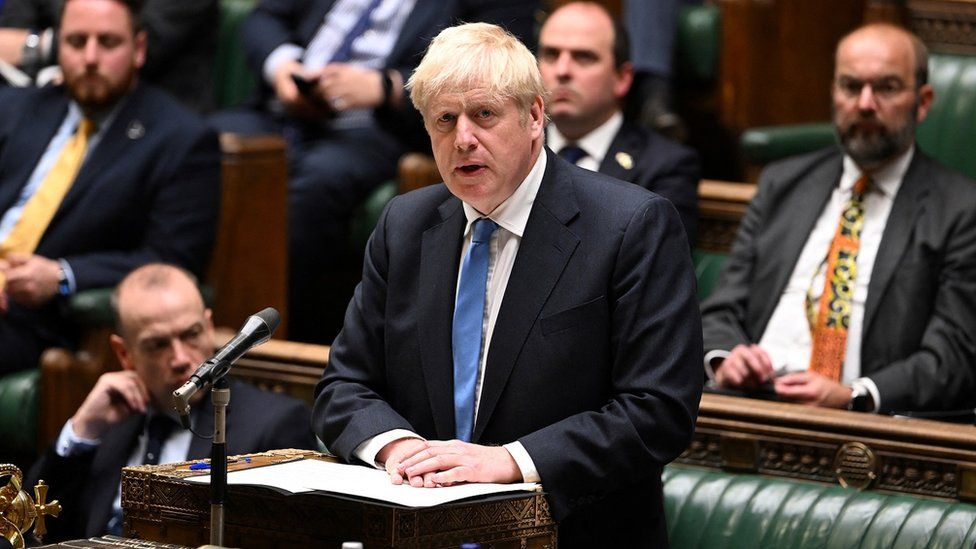ARTICLE AD BOX
 Image source, Jessica Taylor/UK Parliament
Image source, Jessica Taylor/UK Parliament
Boris Johnson's defence against claims he misled Parliament about Covid rule-breaking parties has been published ahead of a grilling by MPs.
The Privileges Committee, which is investigating the allegations, will question the former prime minister in a televised session on Wednesday.
Its findings will be crucial in determining his political future.
In his evidence, Mr Johnson said he accepted "that the House of Commons was misled by my statements".
Reports of gatherings in government buildings during Covid lockdowns first emerged in late 2021, and on several occasions, Mr Johnson, who was then prime minister, told the Commons the rules had been followed.
He later admitted his original statements had since proved incorrect, but he has insisted he believed them to be true at the time and that he had been assured this was the case.
In the dossier, which Mr Johnson submitted to the committee on Monday and which runs to over 50 pages, he echoes that, saying his statements, "were made in good faith and on the basis of what I honestly knew and believed at the time".
He adds: "I did not intentionally or recklessly mislead the House on 1 December 2021, 8 December 2021, or on any other date. I would never have dreamed of doing so."
The cross-party committee, which is chaired by Labour's Harriet Harman, is yet to publish its final verdict but in an interim report, it said Mr Johnson may have misled Parliament multiple times.
Wednesday's session, which could last up three hours or more, will see Mr Johnson face questions from the group of seven MPs, which includes four Conservatives, two Labour MPs and one SNP MP.
If Mr Johnson is found to have misled Parliament, the committee will consider whether this was reckless or intentional and recommend how he should be punished.
MPs would have to approve any sanction but potential punishments range from ordering him to apologise to suspension from the Commons. If he is suspended for more than 10 days, this could trigger a by-election in his constituency.
MPs will be given a free vote, meaning they will not be told to vote either for or against the sanction.

 1 year ago
115
1 year ago
115








 English (US)
English (US)